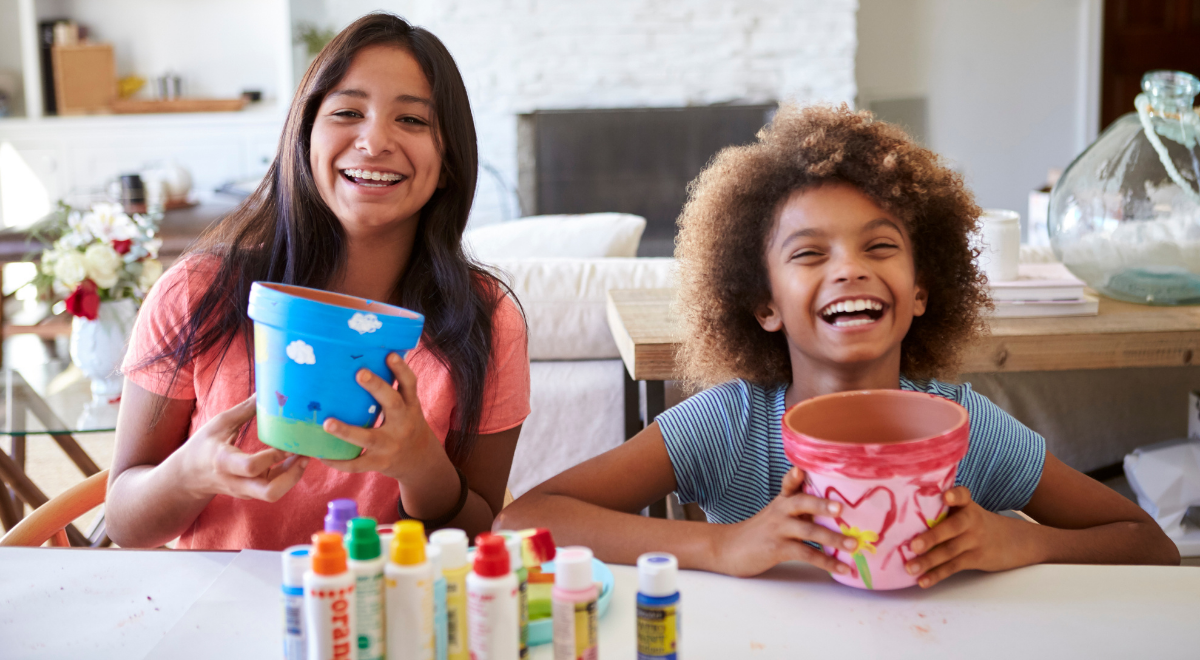What is typically exciting for a kid at summer camp is the chance to enter a unique world with others that is unlike the one they interact in from day to day.

It’s this concept that Aaron Potsick draws on when creating summer camps on Outschool. This year he is offering 17 sections of four different summer camps for learners ages 8 to 16 — think mystery, games, magic, and well, fun!
Since starting on Outschool in 2018, Aaron has offered summer camps for several years and has learned what works well. We asked him to share his experience creating and running virtual camps that learners want to join and return to the next year. Read on for the highlights, or check out a recording of our full interview at the end of this post.
Create a unique group experience
Aaron’s camp descriptions and videos give the sense that anyone participating will be joining an adventure. The descriptions really set the scene and get the imagination rolling.
Aaron says he realized that in the summer, his online classes would be competing with summer activities outside. So, he narrowed in on essential elements of an enjoyable in-person summer experience for young people:
- Interacting with people you normally wouldn’t in new and unique ways
- Playing competitive games with a group of people
- Getting to know the group really well and feeling bonded
- Developing yourself in different ways, including through self-expression and art
- A sense of being more independent than in your day-to-day life
Aaron thought about how to bring these key ideas online to create a standout summer experience. In the end, his goal is to: “Create a sense of a group going through an experience together with a sort of competition angle, something to work toward.”
Do some market research
Aaron starts by looking at what summer camps and other experiences are currently available to young people, both in person and online. That includes what games they are playing and how activities are organized. This helps him get new ideas, see what competitors are doing, and get a feel for what types of activities are currently popular with young people.
He’s careful to pick themes for his summer camps that are of high interest for a large group of young people. “One thing to think about immediately is: How can I list something that has a very large reach?” he says.
“In my book, the key for me to be successful is that I reach a lot of kids and then a lot of those kids come back. That’s another metric of my success: How many of them can I get to do it again next year or other classes with me.”
Think big
Aaron emphasized that he encourages himself to “think big” when brainstorming camp ideas. That includes quieting any “yeah, buts” that arise. There’s time for that later, he says.
Instead, think about what your goal is for each day of camp. “If it’s not impossible to do virtually, still list it down.”
He stretches himself to consider what isn’t being done online because it appears it can’t be done. “What would be the best possible thing to do with them, in real life even?” he asks. That’s what he puts on the list.
Bring in creativity, collaboration, and competition
Then, he thinks about what fun, attainable challenges he can present. He identifies what unique activities he can offer learners each day that involve a different set of skills.
“Just keeping an hour of their summer brain focused is the challenge for sure,” he says.
His analysis of successful camps has led him to create a theme for each day and a goal that learners are working toward. So if the theme is superhero day, he invites learners to dress up as a superhero. If it’s villain day, well, you get the idea.
As for activities on villain day, campers may talk about dark powers in their imaginary world and how to defend against them and earn points toward their goal. They work together in teams of four to do easy tasks to get points. Aaron keeps the competition fun by being flexible about how campers get points so that teams all keep positive energy about the experience.
He also assigns “after-camp work” that he says must be fun and highly interesting. Learners take the assignment and choose the way they want to express themselves, whether drawing, painting, coding, building, or some other activity. Then the next day starts with learners (only those who want to) showing what they made based on the theme.
Aaron’s efforts to engage learners have gotten a big response. Here’s one of many positive reviews for his Phoenix Manor Summer Camp:
“We highly recommend this amazing class – it went way beyond our expectations and the teacher is dynamic and engaging. He keeps things moving and switches things up so that my learner never lost attention and was fully engaged the whole time, and that engagement continued even after the class each day… Even though the class is online, the after-camp activities filled our house with magic for four full days so it really felt like a special event.”
Consider your format carefully
Aaron usually leads a four-day a week camp, one hour each day, although he is trying out a 3-day camp this summer. He knows that summer schedules are varied and families may take vacations, and he doesn’t choose to spread camps out over multiple weeks.
Most parents are thinking, “we’re home that week and we need something fun for our kids to do, something they’re going to love, something that I think is valuable,” he says.
He thinks that four days a week for an hour each day is doable for most families.
Actively join the adventure
There’s a lot to manage with summer camps, Aaron says, including expectations and keeping track of points from competitions as the camp progresses. But remember to have fun!
“I have a blast every time I do my summer camps,” he says. Every time he starts a camp, he reminds himself that learners are here for a great experience, and he is part of that.
If there’s a dress-up day, Aaron sets the tone with his own outfit, even if it’s something simple like putting on a hat. “If you want them to do something funny or silly, then you have to be funny or silly.”
Adjust and keep going
Aaron reminds himself that he offers a unique product, and he expects to have enrollments in the summer.
Yet, he has had two summer camps that he calls unsuccessful, even though he was certain they would be hits. “So being able to regroup, rethink, okay ‘Last year was different. I’m going to do something different this year, and here’s how I’m going to make it different,’ ” is something Aaron considers an important skill.
Not giving up is key, he says. Find what works and change what doesn’t. Do this consistently, and see the results in every happy learner’s face as your business grows.

